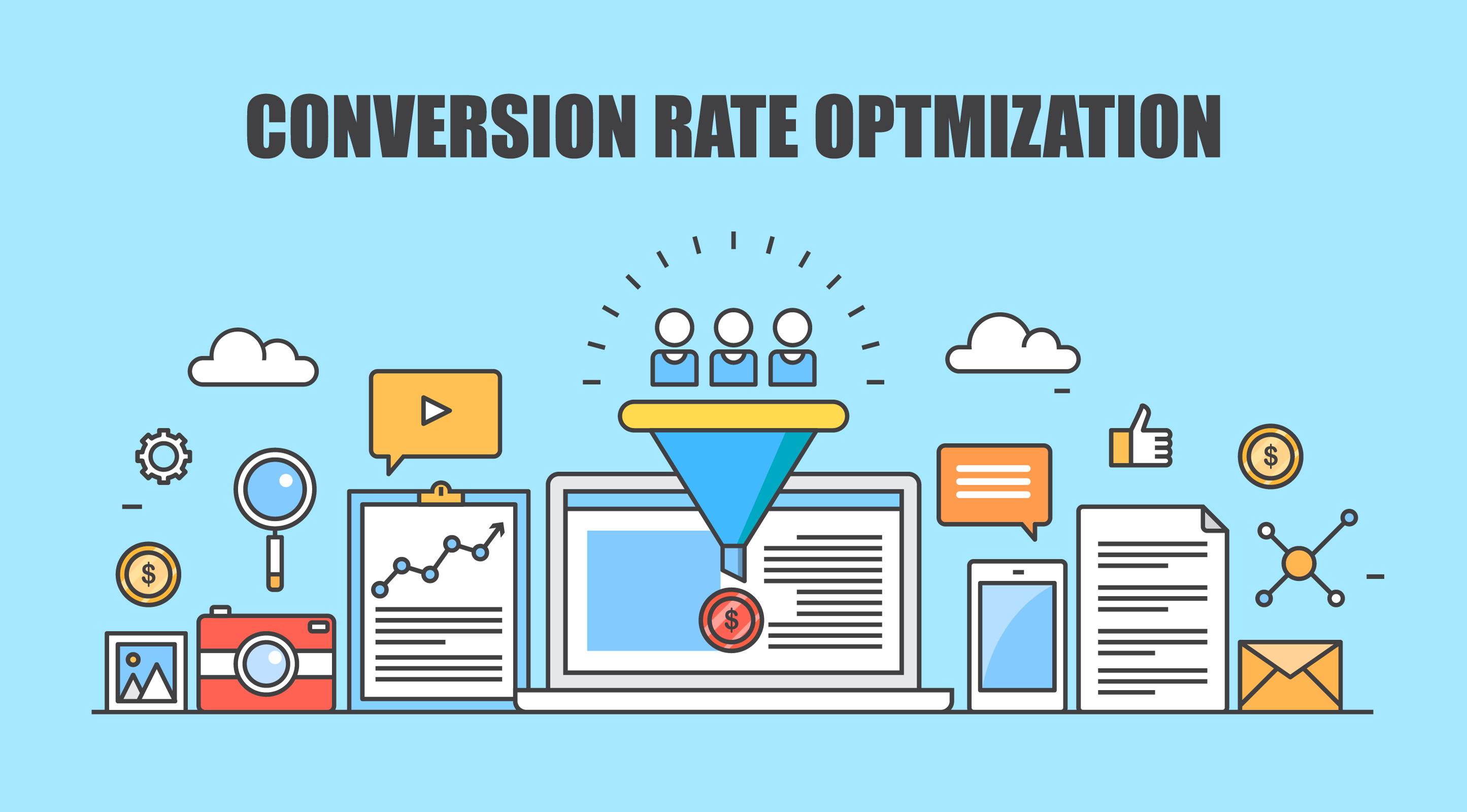Everything You Need to Know About Conversion Rate Optimization (CRO)
Suppose you want to improve your website’s conversion rates and experience growth in e-commerce. In that case, developing new ideas and utilizing conversion rate optimization (CRO) tools and strategies are essential for enhancing the elements that drive leads and conversions.
Achieving exceptional CRO results takes effort, but it’s possible with the right optimization tools and techniques.
Conversions can occur in various areas of your web page, such as blog content, landing pages, homepages, pricing pages, and more. This highlights the importance of having a responsive website that can turn visitors into loyal, paying customers.
Before we dive into specific CRO best practices, let’s first understand why optimizing your conversion rate is crucial.
Why CRO Is Important
Conversion rate optimization (CRO) allows you to extract more value from the total number of visitors to your website. It is one of the most cost-efficient ways to improve user experience, increase customer retention, boost web traffic, and ultimately, raise your business’s ROI. The CRO process enhances your digital marketing efforts, helping you achieve a higher conversion rate by guiding visitors to take the action you want.
What is Conversion Rate Optimization?
CRO is the process of increasing the percentage of visitors who complete a key conversion, such as filling out a form, signing up for a newsletter, or making a purchase. The power of CRO lies in its ability to improve your conversion rate without requiring additional traffic. To calculate your site’s conversion rate, divide the number of conversions by the total number of website visitors and multiply by 100 to get a percentage.
Now that we understand the importance of CRO, let’s explore effective conversion rate optimization strategies to help your business grow.
CRO Strategies That Will Boost Your Business Growth

1. Declutter Your Website
A clutter-free web page improves the user experience and increases conversion rates. When visitors to your website encounter distractions, they may leave before completing a specific action. Focus on improving your conversion by refining your design and making your landing page more concise.
Best practices for decluttering include:
- Using visuals with context to showcase your product or service
- Adding social proof, testimonials, and videos
- Highlighting product benefits and key features
- Crafting compelling headlines and subheadings
The goal is to eliminate distractions and guide visitors toward your conversion goal.
2. Create Strong CTA Copy
A well-crafted CTA (call-to-action) can lead to a significant increase in conversion rates. Generic CTAs such as “Start Trial” or “Sign Up” may not resonate with your target audience. Instead, use persuasive language that encourages visitors to take a desired action, such as “Yes, I want my discount” or “Join now for exclusive benefits.”
To optimize your CTA buttons, run a CRO test using analytics tools like heatmaps and A/B testing to determine which CTA copy performs best.

3. Implement Pop-Ups
Pop-ups can be an effective CRO approach when used correctly. Research shows that pop-ups can yield a conversion rate of 3.09% on average, with some achieving up to 10 conversions per 100 visitors.
To optimize your pop-ups:
- Set a cookie to show the pop-up only once per user
- Delay the pop-up by at least 30 seconds to reduce intrusiveness
- Offer incentives such as discounts or freebies
- Ensure easy closure to avoid frustrating users
4. Add Live Chat to Your Site
Live chat can increase your site’s conversion rate by addressing visitor concerns in real time. When visitors are hesitant about making a purchase, live chat provides immediate support, increasing the likelihood of a successful conversion rate optimization process.
5. A/B Test Your Headlines
Headlines play a crucial role in conversion optimization. According to research, eight out of ten visitors read the headline, but only two continue reading the content. To improve your website conversion rate, test different headline variations, including tone, length, and numerical statistics.
6. Minimize Bounce and Exit Rates
A high bounce rate indicates low conversion rates and a poor user experience. Conducting a CRO audit and using optimization tools to track conversion rates can help identify problem areas. Slow-loading pages and non-mobile-friendly designs are common culprits that hinder the optimization process.
With nearly half of web users browsing on mobile devices, optimizing for mobile is essential for improving conversion rate optimization.
7. Use Explainer Videos to Generate Leads
Explainer videos are effective for engaging your target audience and increasing conversions. Videos allow you to showcase your product or service in a concise and compelling manner. To enhance CRO practices, ensure your videos load quickly and capture attention within the first few seconds.
8. Leverage Retargeting
Retargeting is a key conversion strategy that re-engages visitors who previously interacted with your site but did not convert. Running retargeting ads featuring discounts or product recommendations can lead to an increase in conversion rates.
9. Optimize Your Site’s Conversion Funnel
A well-structured conversion funnel includes the following stages:
- Awareness: Introducing your brand
- Interest: Engaging potential customers
- Consideration: Encouraging visitors to explore your product page
- Conversion: Persuading visitors to take a specific action
Optimizing each stage of the funnel ensures a smoother user journey and a higher conversion rate.
10. Use Lead Capture Forms
Lead capture forms are essential for collecting customer data and improving your website conversion rate. Best practices include:
- Using CRO and SEO strategies to improve form visibility
- Reducing the number of required fields
- Including social proof and testimonials for credibility
Conclusion
Successful conversion rate optimization requires a strategic approach, continuous testing, and data-driven insights. By implementing CRO best practices and conversion tracking, you can focus on improving your site’s conversion rate and overall business growth. Every conversion is great for your business so you must boost conversion.
Start by optimizing your digital marketing strategies and optimization efforts, using analytics tools, and refining your CRO process. With a consistent and strategic approach to CRO, you can increase your conversion rate and long-term success.






